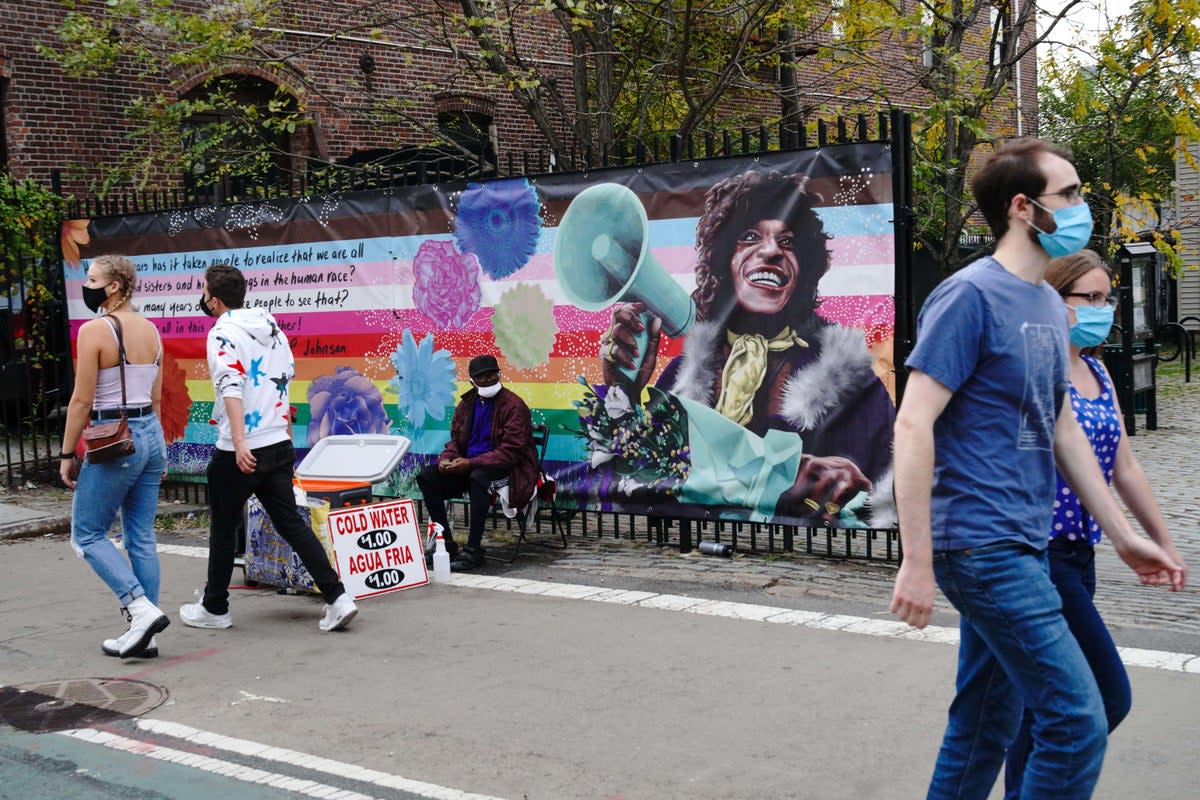6 LGBT history icons you may not know about

As February marks LGBT History Month, you may be reflecting on the history you studied at school and realising that, aside from Oscar Wilde and Alan Turing, your knowledge of trailblazing LGBT history-makers is vague.
So, who are the famous, or not-so-famous, LGBT game-changers that we should know about?
1. Marsha P Johnson (1945 – 1992)
Drag queen, gay rights activist and vital part of the Stonewall riots, Marsha P Johnson was a founding member of the Gay Liberation Front.
Although ofted wrongly credited as being a starter of the Stonewall riots, she was one of the first women and drag queens to go to the Stonewall Inn in New York, which was originally only for gay men. When police raided the venue, violent riots and protests began, as LGBT people tried to protect their space.
Johnson has become a symbol of black, gay and trans resistance all over the world. She was also a model for Andy Warhol, and a prominent Aids activist with ACT UP.
2. Audre Lorde (1932 – 1992)
Audre Lorde describes herself as a ‘black, lesbian, mother, warrior, poet’, and her work has become synonymous with LGBT freedom. Her poetry is well-known in LGBT and black activist circles, and it powerfully calls for racial justice.
Lorde and fellow writers, Cherríe Moraga and Barbara Smith, founded Kitchen Table: Women Of Color Press, a publishing house that was devoted to publishing work by females of colour.3. Pierre Seel (1923 – 2005)
Seel was conscripted into the German army, and is said to be the only French person to have openly testified about his experience of being deported due to his homosexuality during WWII.
For a long time after his imprisonment, anti-homosexuality laws meant Seel could not tell his story. When he was finally able to come out, after battling alcoholism and having several children, he was a devout activist, amplifying the voices of gay Holocaust survivors.
4. Ma Rainey (1886 – 1939)
Iconic blues singer Ma Rainey made some 100 records in five years, including the risky openly lesbian number, Prove It On Me Blues, which features the lyrics: ‘Went out last night with a crowd of my friends. They must’ve been women, ’cause I don’t like no men’.
Bisexual blues singer Bessie Smith is thought to have bailed Rainey out of jail, when she was arrested for hosting an all-female party.
5. Christine Jorgensen (1926 – 1989)
Trans performer Jorgensen became known for being the first actress to have gender affirmation surgery in the US. After fighting in WWII, she went to Copenhagen to undergo the surgery. She had a successful career as a performer, and was an advocate for trans rights and visibility in the US.
Jorgensen toured university campuses, sharing her story and was well known for her fiery personality and wit.
6. Barbara Gittings (1932 – 2007)
Gittings said she suspected of being a lesbian at university and was apparently told by a teacher that her exclusion from the National Honor Society in 1948 may have been due to ‘homosexual inclinations’.
With this, she rejected the view of homosexuality as sinful, and instead joined the Daughters Of Bilitis, a group aimed at improving the lives of lesbians. She marched in the very first gay picket lines outside the White House in 1965, carrying a sign reading: ‘Sexual preference is irrelevant to federal employment’, which is now in the Smithsonian Institution.
She famously said: “Equality means more than passing laws. The struggle is really won in the hearts and minds of the community, where it really counts”.
Gittings was co-Grand Marshall of the 1997 New York City Gay Pride Parade, where she was named a ‘Mother of Lesbian And Gay Liberation’. In 2001, the Gay And Lesbian Alliance Against Defamation (GLAAD) honoured her with the inaugural ‘Barbara Gittings Award’ for Activism.


